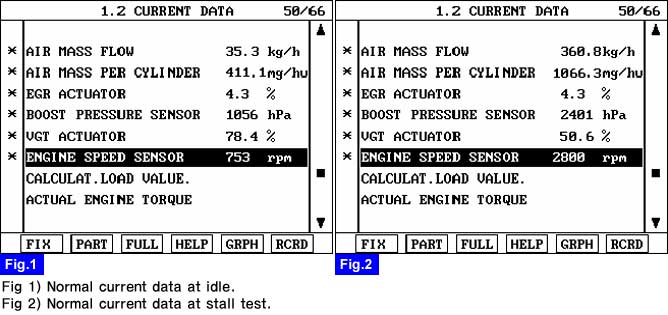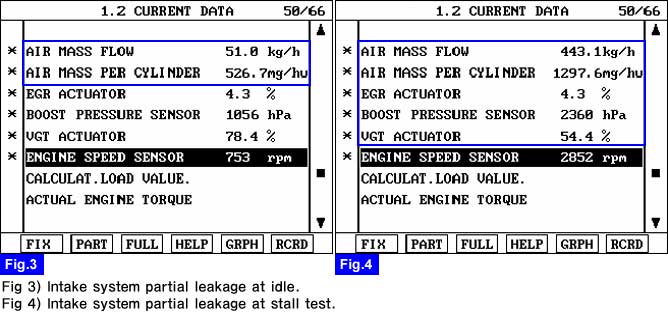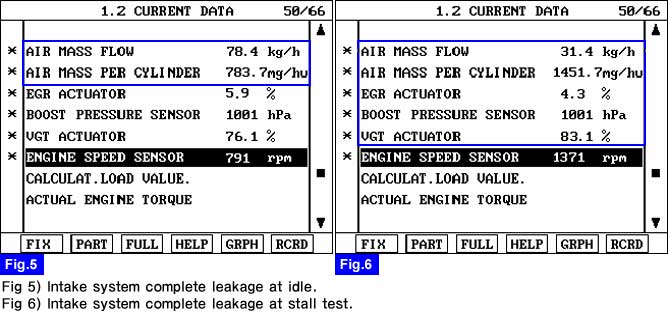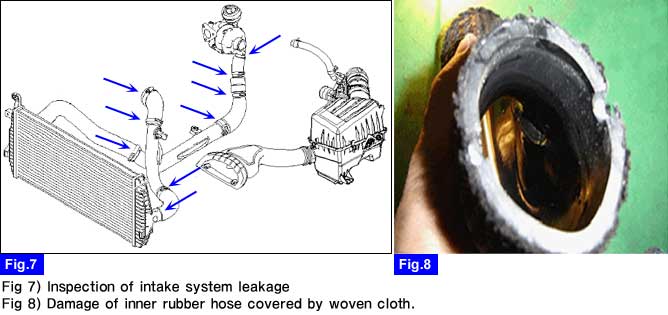Monitor parameters as above at idle and stall test.
"Stall Test" of "Details Inspection(Equipment Setting)" reference
Monitor current data at idle and stall test : "EGR actuator" is not operated (4.3%)
EGR solenoid valve is operated for approx. 3 minutes after racing the accelerator pedal at warm up idle (Neutral, Load is not applied) and "EGR actuator" duty is to 4.3% after 3 minutes.




